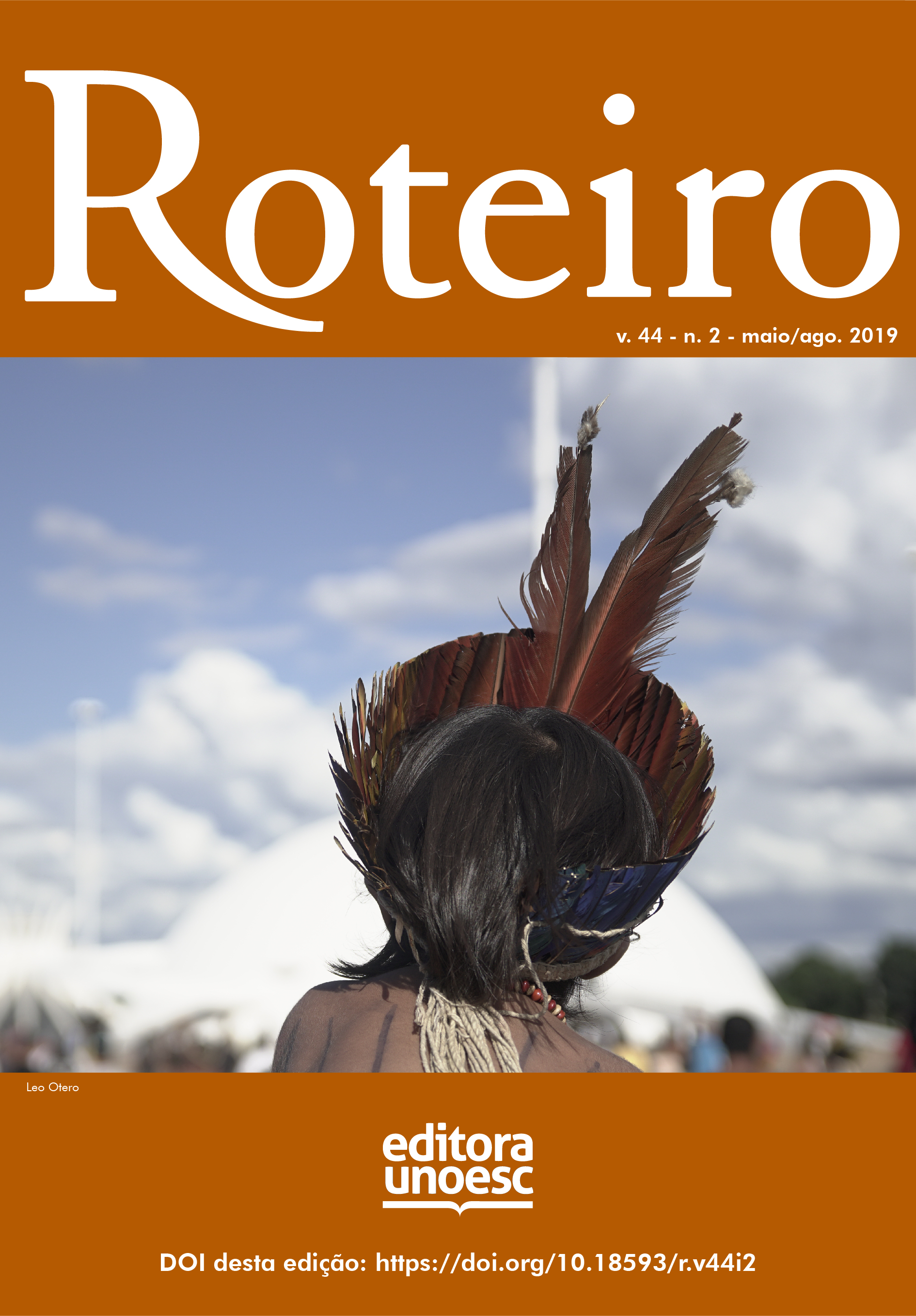Stories that educate: from the old of quilombo to the training for youth - memory, knowledge, tradition
DOI:
https://doi.org/10.18593/r.v44i2.17535Keywords:
Stories of old, Quilombo, Local knowledge, OralityAbstract
In the process of building knowledge many peoples, cultures and knowledges have been marginalized. This article is a problematization proposed to a research, completed in the Postgraduate Program in Education of the State University of Rio Grande do Norte, which aims to investigate the influences of the Knowledge of Tradition concretized by the "old people's stories" of the Quilombola Community of Santana, in Pernambuco, for the formation of the youth of that locality. As a method, we have Oral History which examines the work of memory as a legacy of community tradition. The study evidences and denotes the direct relation of the teachings of the elders for the formation of the younger ones and, as a theoretical basis, is based mainly on Bosi, Halbwachs, Pollak and Alberti for this investigation.
Downloads
References
ALBERTI, V. História oral: a experiência do CPDOC. Rio de Janeiro: Fundação Getúlio Vargas, 1990. DOI: https://doi.org/10.1590/S0034-71671991000100018
ALBERTI, V. Manual de história oral. 3. ed. Rio de Janeiro: Editora FGV, 2005.
AREDNT, H. A condição humana. Tradução: Roberto Raposo. 10. ed. Rio de Janeiro: Forense Universitária, 2007.
ATAÍDES, J. M.; MACHADO, L. A.; SOUZA, G. G. Desenvolvimento e direitos humanos: a responsabilidade do antropólogo. Campinas, SP: UNICAMP, 1992.
BÁ HAMPATÉ, A. A tradição viva. In: KI-ZERBO, J. (ed.). História Geral da África, I: Metodologia e pré-história da África. 2. ed. Brasília, DF: UNESCO, 2010.
BOSI, E. Memória e Sociedade. Lembranças de velhos. 3. ed. São Paulo: Companhia das Letras, 1994.
FLEURI, R. M. (org.). Educação Intercultural: mediações necessárias. Rio de Janeiro: DP&A editora, 2003.
FRANCO, A. de. A revolução local: globalização, glocalização, localização. São Paulo: Cultura/AED, 2003.
HALL, S. A identidade cultural na pós-modernidade. 10. ed. Rio de Janeiro: DP&A Editora, 2005.
MONTEIRO, V. S. V. Canudos: guerra de memória. Revista Mosaico, Rio de Janeiro, ano 1, n. 1, p. 84-93, 2009. Disponível em: http://cpdoc.fgv.br/mosaico. Acesso em: 16 jan. 2014. DOI: https://doi.org/10.12660/rm.v1n1.2009.62778
OLIVEIRA JUNIOR, G. B. Relatório antropológico de caracterização histórica, econômica, ambiental e sociocultural da comunidade remanescente de quilombo de Santana. Salgueiro, PE: Ministério da Integração Nacional, 2009.
HALBWACHS, M. A memória coletiva. Presses Universitaires de France, 1990.
PETIT, S. H. Práticas pedagógicas para a lei nº 10.639/2003: a criação de nova abordagem de formação na perspectiva das africanidades. Educação Foco, Juiz de Fora, v. 21, n. 3, p. 657-684, dez./set. 2016. Disponível em: http://ojs2.ufjf.emnuvens.com.br/edufoco/article/view/19874/10621. Acesso em: 15 mar. 2019. DOI: https://doi.org/10.22195/2447-5246v21n320163194
POLLAK, M. Memória e Identidade Social. Estudos Históricos, Rio de Janeiro, v. 5, n. 10, p. 200-212, 1992.
SANTANA, J. V. J. A face simbólica dos “saberes da tradição” e a produção de identidades no contexto do povo indígena Kiriri. Revista Espaço Acadêmico, n. 101, 2009. Disponível em: www.revipsi.uerj.br/v8n2/artigos/pdf/v8n2a13.pdf. Acesso em: 20 nov. 2014.
SCHNEIDER, D. R. O método biográfico em Sartre: contribuições do existencialismo para a psicologia. Revispsi/UERJ, Rio de Janeiro, ano 8, n. 2, p. 289-308, 1º sem. 2008. Disponível em: www.revipsi.uerj.br/v8n2/artigos/pdf/v8n2a13.pdf. Acesso em: 15 jan. 2014.
VANSINA, J. A Tradição Oral e sua Metodologia. In: KI-ZERBO, J. (ed.) História Geral da África, I: metodologia e pré-história da África. 2. ed. Brasília, DF: UNESCO, 2010.
Published
How to Cite
Issue
Section
License
Copyright Notice
The authors retain copyright and grant the Journal the right of first publication, with the work simultaneously licensed under a Creative Commons – Attribution – 4.0 International license.












